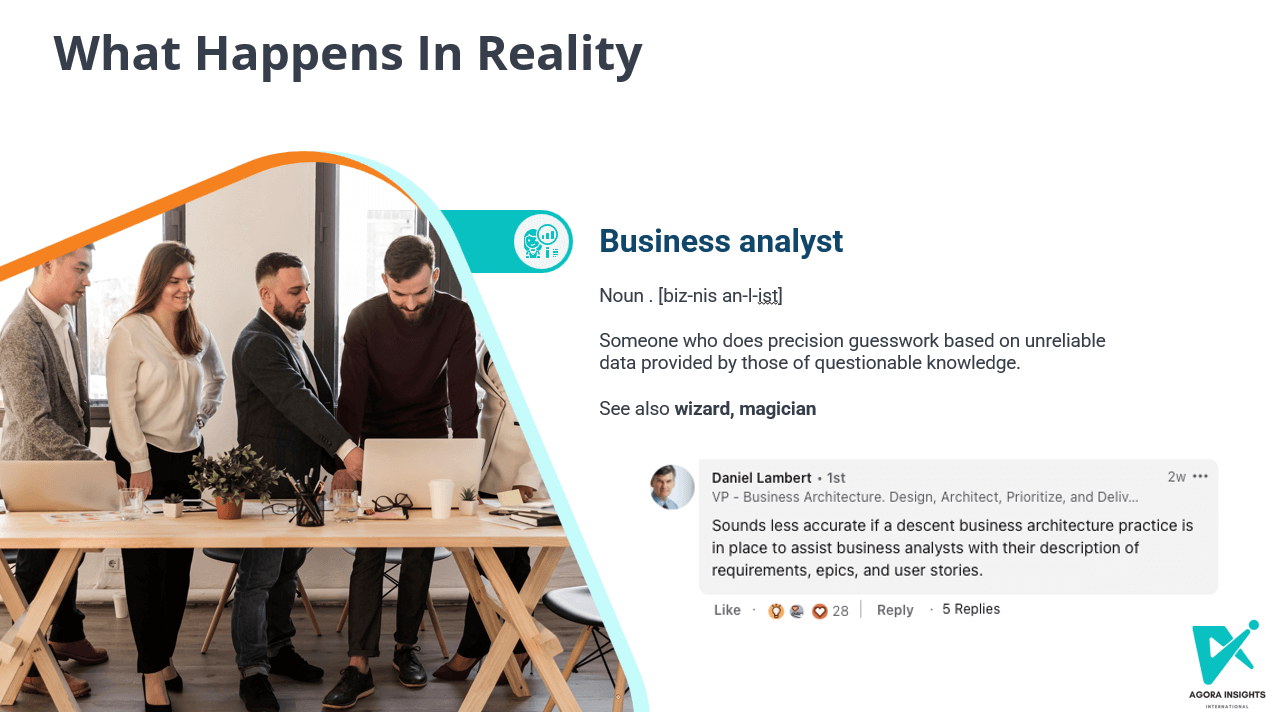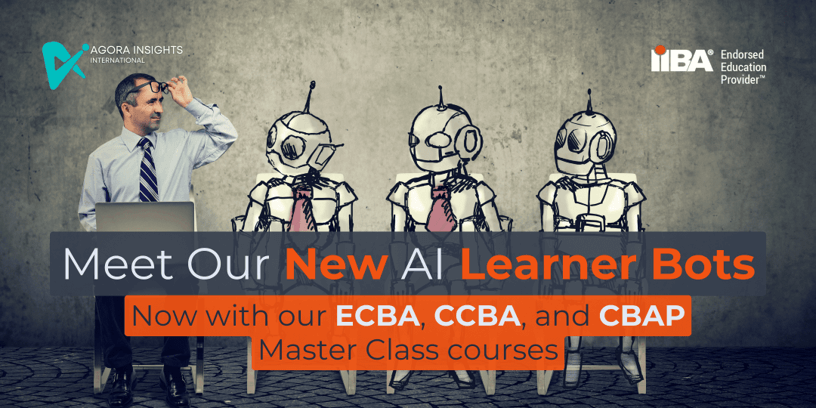Some of the questions that were addressed in the BA Jam Oceania panel were:
- What has the past taught us about what needs to change for the future?
- What would a futuristic business analyst look like?
- Why do we still need business analysts if other roles are performing business analysis?
Honoring the Past

Looking back, it's amazing to see how far business analysis has progressed over the years. What began as ambiguous "analyst" roles grew into the specialised discipline we know today.
BAs used to spend a lot of time documenting and gathering requirements. Many of us were put into the role with no training or understanding of what we were doing. The world was changing quickly, and we needed to figure out what was going on. It had "Wild West" elements to it. BAs, however, today play a crucial role in translating business needs, enabling organisational transformation, and assessing solutions, thanks to the rigorous creation of standards, certifications, and training programmes.
BABOK guidelines and IIBA certifications helped to professionalise BA competencies. To make a difference, today's most effective BAs combine technical expertise, business insight, and soft skills.
Recognizing the Present
In the current landscape, experienced BAs are true partners helping enterprises navigate digital transformation. Beyond requirements gathering, BAs provide critical business-IT alignment, stakeholder engagement, and analytical insights.
Additionally, many business analysts are investigating AI potential, determining where it may help with analysis, and trying to "play in the sandbox." This is still in its infancy, but it is rapidly expanding. When combined with context, AI has the potential to boost BA productivity and knowledge discovery.
BAs bridge communication barriers between business leaders and technical teams by using disciplined approaches and interpersonal skills. They convert hazy concepts into actionable needs that drive development. This is unlikely to alter in the future, so we must ensure that we continue to attain more success.
Organisations, more than ever, require BAs who can inspire collaboration, uncover hidden needs, and identify misalignments before they ruin initiatives.
It was a great presentation, with lots of good information, and Questions: Yvonne Sharpe IIBA Victoria
Key questions asked transitioning from current to future state
Embracing the Future
As we celebrate November 1st, rising technologies such as artificial intelligence (AI) will become a reality for evolving BA toolkits and ways of working. AI adoption will empower BAs to concentrate their efforts on high-value validation and strategy. However, BAs must understand what prompt engineering is and why it is necessary. Consider BACCM!
To remain relevant, we must accept new methodologies while maintaining a firm grasp on principles such as elicitation, critical thinking, and stakeholder engagement. Training and certification will become increasingly vital for upskilling business analysts, ensuring that they have the knowledge and language to have the right conversations.
BAs who are willing to change while embracing new technologies to improve analysis competencies have a bright future. Their combination of human understanding, soft skills, stakeholder involvement, and technological fluency will become even more important.
Thank you so much to Deirdre and the entire Agora Insights team for the excellent content and insightful discussion on how artificial intelligence impacts the business analyst roles and deliverables. Ebenezer Ajibade, President, IIBA New Brunswick Chapter
Agora Insights Custom Bots:

Deirdre spoke about something that is very new to us within the Winnipeg market, that being AI.
My email is on fire with an enormous amount of positive feedback. – Vincent Turski
Vice-President of Member Events
Conclusion
What an honor it has been to be part of an extremely dynamic community! Let us celebrate the significant evolution of business analysis over the years on November 1st. And, as the transition accelerates, let us remember that BAs are just getting started in terms of growing their careers.
We at Agora Insights are excited to continue providing BAs with the methodologies and attitudes they need to flourish now and in the future. We are honored to be a part of the BA community's journey of continual growth.
Post sponsored by Agora Insights Ltd


Post a Comment